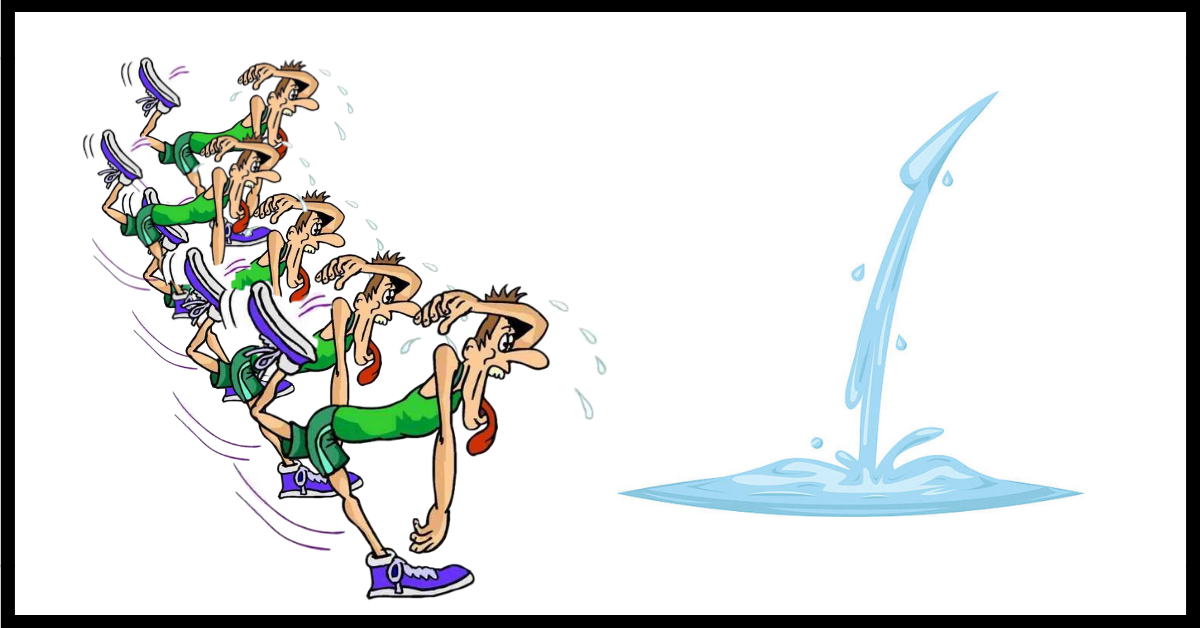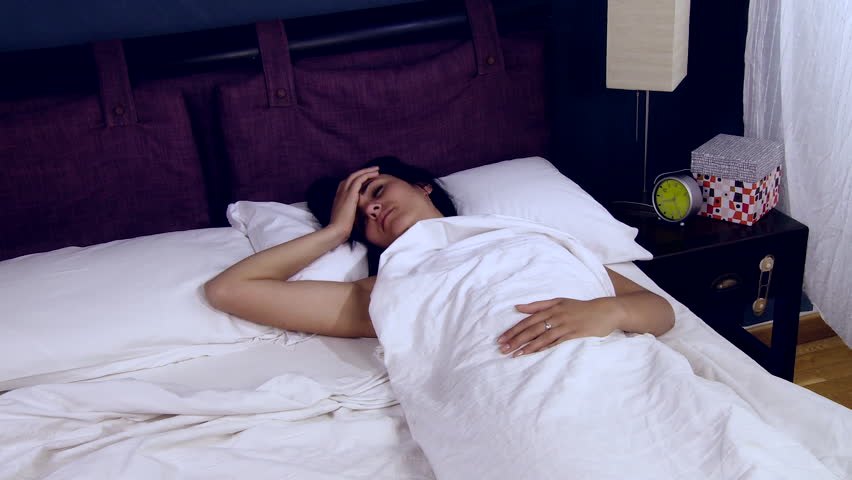Myth One: If you don’t have clear wee you are dehydrated.
The fact of the matter is, if your wee is clear, you are likely over hydrating, or you may have kidney problems, diabetes, or other health issues.
Your body is very clever. It can defend itself against dehydration by changing the amount of water it retains. If it is retaining water, then your urine will be darker in colour. And if your urine is darker in colour because your body is retaining water, that can be a good thing. It means your body is working well to remain hydrated. Conversely, if you have more fluids than your body needs, it will rid itself of the extra water in your urine, making it less concentrated. The more we drink, over and above what our needs are, the more we wee, and the clearer our wee will be. Studies that have looked at blood markers of hydration have found the colour of your wee does not necessarily correlate with dehydration (that is, a blood sodium level of over 145 mmol/L.
As far as wee colour goes, something not clear, and not dark as tea, is where you want to be (as long as you have no medical conditions which will effect your hydration status). If you do have persistently dark wee, or persistently clear wee which can’t be explained by the amount you drink, you should see a doctor.
Myth Two: If you don’t drink water during a race, your performance will suffer
Used to be, people would say if you wait until you’re thirsty to drink, it’s too late-you’re already dehydrated and your performance has already been impaired. It seems that the body can cope much better with temporary dehydration than was previously thought. Taking water on board based on how you feel is more important than replacing every drop of fluid you use.
A couple of recent studies highlight this well.
One study had 23 female recreational runners do two 15km time trials, in mild, but humid conditions (68 degrees F/ 20 degrees C, 87% humidity). In one of the trials, they drank 12 oz of water during the run (about 350mls), and in the other they simply rinsed their mouths with water and spat it out, every 3kms.
The results were interesting. The time trial results of the two groups were pretty much the same – the drinking group averaged 79.8 mins and the mouth wash group averaged 79.7 minutes for the 15k. The drinking group sweated more, and the mouthwash group felt thirstier after the run. The study also looked at a group of responses called “affective responses”, which looked at things like pleasure, arousal, energy, calmness and tension. Again, the responses were fairly similar on most measures, but the mouth wash group did report more tension.
So, under these conditions the runners didn’t need to consume water to maintain performance. Note that the temperature was fairly mild. It’s not at all unusual in Australia to be running in much hotter temperatures. I’m not suggesting you shouldn’t drink if you feel like you need to. I am suggesting that we don’t need to drink as much as we think we do, and if your gut feels like it can’t handle any more water, you could just try rinsing and spitting instead. You might actually be better off pouring the water over your head to cool you off!
A 2010 study (sponsored by gatorade) compared runners over a series of four trail runs. One group drank 200mls of water in the 22 hours prior to the runs, and no water during the runs, and the other group went into the runs well hydrated, and drank during each run. The results showed impaired performance for the non drinkers. Note that these runners with impaired performance started the run already dehydrated, as compared to the other studies which were done with runners who had normal hydration levels prior to the experiment.
Myth Three: Loss of body weight during a run means you are dehydrated and your performance suffers
Changes in body weight when you are exercising hard are not only caused by fluid loss. You burn fuel when you run, and when that fuel is used up, then you weigh less. As your race or training run progresses and you use up stored carbohydrate and fat your weight will drop. Not only that, as you burn calories during your run, you’ll also be liberating some water, which becomes available to you body. Another fact to consider is that as you lose body weight during a run due to fuel burning and fluid loss, your lighter weight will enable you to run faster – up to a certain point of course. You don’t want to deliberately dehydrate yourself in a bid to lose body weight to help you run faster! I’m just saying that all these little things add up to going some way to explaining why reduced body weight is not the best predictor of performance. The purpose of drinking during exercise is to keep your blood plasma levels stable, not to keep your body weight stable.
A 2016 study had well trained athletes run a 20k time trial in the heat. One group drank as much as they wanted to during the run, the other drank a set amount of fluids based on pre-determined individual needs, designed to replace as much of their sweat loss as possible.
The “drink when you want” group lost 2.6% of their body weight, whilst the well hydrated group lost only 1.3% of their body weight during the time trial. As you’d expect, the group who were drinking deliberately lost less body weight than the “drink when you want” group. Nothing to see there. But here’s what’s interesting. The performance of the groups was very similar. The hydrated runners averaged 1:44:39, and the “drink when you want” runners averaged 1:44:09. There was no difference in core temperature between the two groups at any point.
Haile Gebreselassie, one time marathon world record holder and all out running legend lost 9.8% of his body weight when he won the Dubai marathon in 2009. One study looked at the fluid intake of 9 major city marathon winners, and 1 second place getter. It showed a body weight loss of between 6.6% and 11.7%, including including Gebreselassie’s 9.8% loss in 2009. Seems you can get some pretty good results, even if you lose quite a bit of weight during a race!
A Few Tips on Hydration
- Drink water when you are thirsty, all of the time, not just when you are running. That way you’ll go into a run well hydrated.
- For runs of 60 minutes or less, it seems you probably don’t need to drink much, if at all, unless the conditions are hot and humid. What feels “hot and humid” to you will depend on the weather conditions you are used to running in, your age, and your body size and composition.
- Experience will help you find the ideal hydration strategy for you. Around 500mls of water each hour once your runs are longer than 60 mins is a good starting point.
- Drink when you are thirsty during your run – water availability permitting. You might find you have to be a bit flexible on this if you are not carrying water with you.
- Choose a route where you know there will be water available to you, or do a loop course and stash a water bottle somewhere, or leave it in your car.
- If you plan to carry fluid with you in a race, it’s a good idea to train with what you are going to carry to get used to how it feels.
DISCLAIMER: Any information contained in this document is obtained from current and reliable sources and is solely for the purpose of interest and information. Individuals receiving this information must exercise their independent judgment in determining its appropriateness for their particular needs. The information and training advice is general in nature and may not be suited to the recipient’s individual needs. Medical advice should always be sought when starting an exercise program. As the ordinary or otherwise use(s) of this information is outside the control of the author, no representation or warranty, expressed or implied, is made as to the effect(s) of such use(s), (including damage or injury), or the results obtained. The author expressly disclaims responsibility as to the interpretation of the views contained in this article, ordinary or otherwise. Furthermore, the author shall not be liable for any errors or delays in the content, or for any actions taken in reliance thereon. The author shall not be responsible for any damages resulting from use of or reliance upon this information. Readers of this document are solely responsible for compliance with all laws and regulations applying to the use of the information, including intellectual property rights of third parties.


